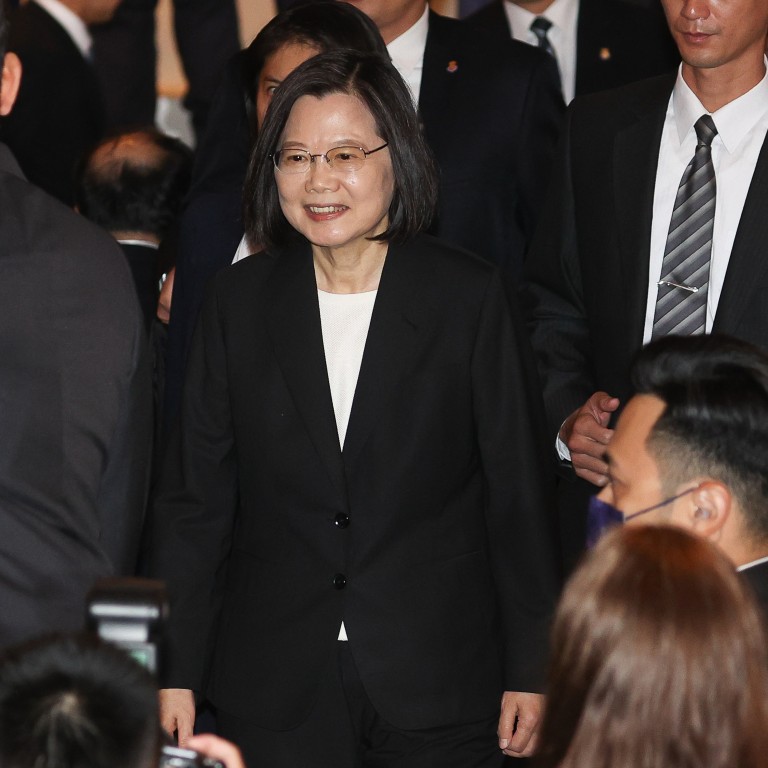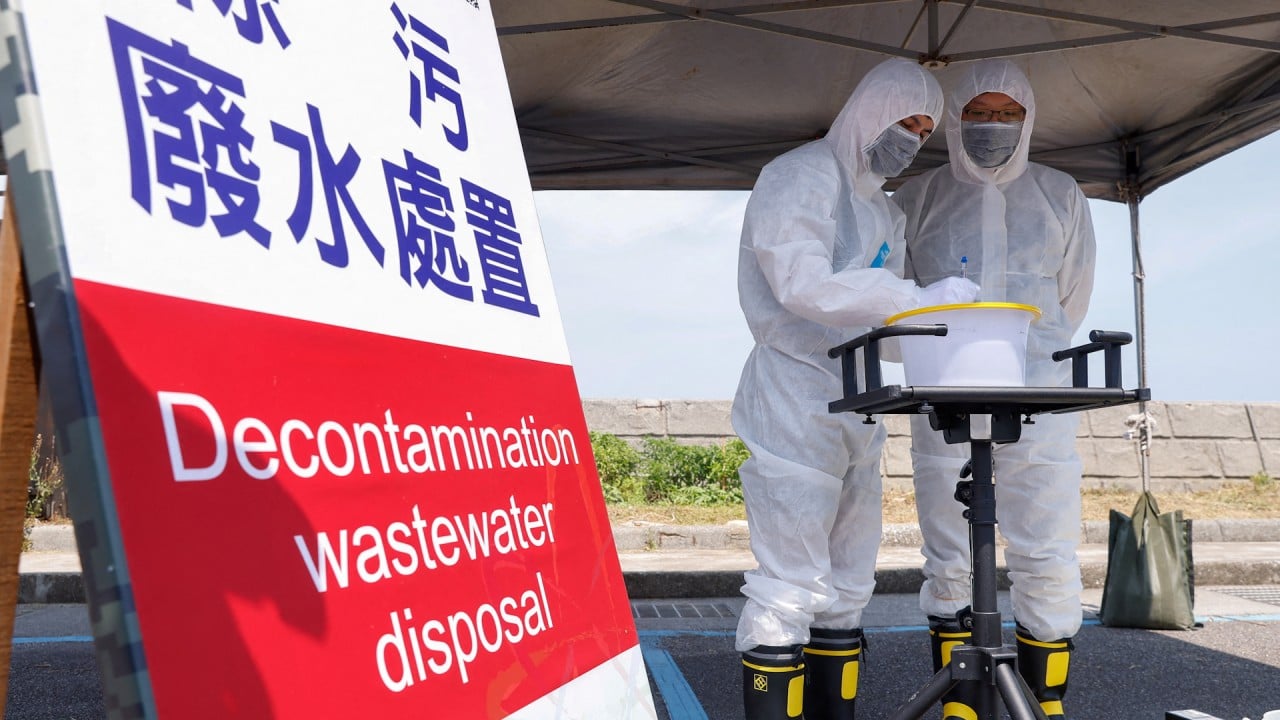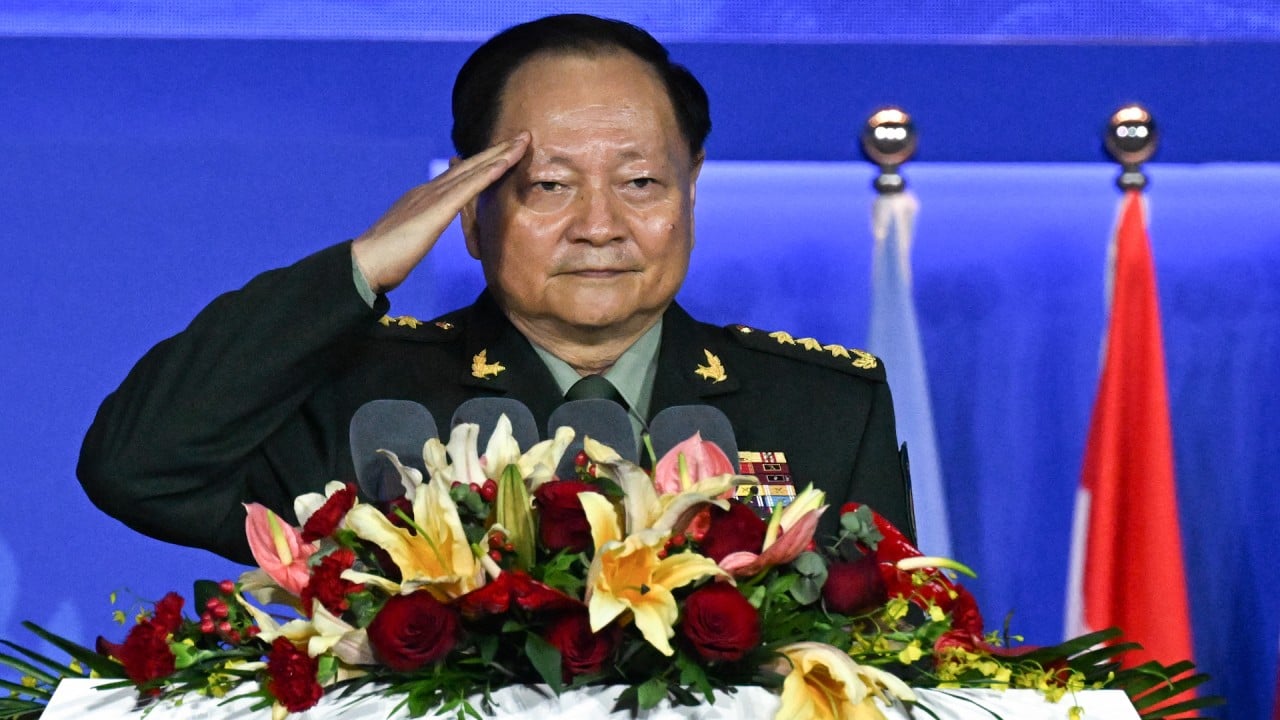
Taiwan will defend ‘freedoms and democracy’, President Tsai Ing-wen tells security forum, takes veiled swipe at Beijing over ‘misinformation’
- Most pressing threat to hard-earned values ‘comes from authoritarian regimes’, island’s leader tells Taipei Security Dialogue
- In apparent criticism of Beijing, Tsai highlights ‘authoritarian actors’ cognitive warfare, in the form of mis- and/or disinformation’
“We must remain steadfast in our defence of freedoms and democracy,” Tsai told researchers, former foreign officials and diplomats gathered for the Taipei Security Dialogue.
The annual conference is hosted by the Institute for National Defence and Security Research, a government think tank in the Taiwanese capital. This year’s theme was “China and the Challenge to the Global Order and Democracy”.
“Perhaps the most pressing threat to these values comes from authoritarian regimes,” Tsai said.
Taiwan has been shoring up its defences, Tsai said, citing the reintroduction of a year’s mandatory military service for all Taiwanese, reorganisation of the island’s military structure, launch of its first indigenous submarine prototype in September and increases in its defence budget.
Relations across the Taiwan Strait, which began to deteriorate after Tsai’s independence-leaning Democratic Progressive Party came to power in 2016, have worsened in recent years as her administration leans ever closer to the United States.
Beijing sees Taiwan as a breakaway province to be reunified with the mainland, and has refused repeatedly to rule out taking it back by force. While most countries do not recognise Taiwan as an independent state, they are opposed to any use of force by Beijing.
Taiwan’s defence budget has grown by over 55 per cent over the past decade, as perceived cross-strait threats intensify. In August, the 2024 government budget proposed to set aside a record NT$606.7 billion (US$19.5 billion) for the defence ministry. The amount, equal to almost 2.5 per cent of the island’s gross domestic product, represents the highest defence budget in 10 years in nominal terms and needs to be approved by the legislature.
Taiwan’s military must objectively assess PLA then ‘strengthen ourselves’
At the forum, Tsai also highlighted threats faced by Taiwan from disinformation, adding her government fights this by publicly refuting false information.
“Authoritarian actors’ cognitive warfare, in the form of mis- and/or disinformation, attempts to exploit and drive polarisation in our free and democratic society,” she said.
Underscoring Taiwan’s connections to other democracies, Tsai said the island is a “responsible member of the international community”.
“With democracies around the world facing their greatest tests in a generation, it is crucial that we come together in deterring adventurism and aggression in the region to ensure a peaceful future and the continuation of our shared values,” she added.
Beijing has doubled down on its efforts to reduce Taiwan’s presence on the international stage since Tsai, who completes her second and final term next year, first took office in 2016.
Nine countries have since then switched allegiance from Taiwan to Beijing, leaving the island with just 13 diplomatic allies. Under the respective interpretations of “one China” by Taiwan and Beijing, foreign states can only recognise one or the other, not both.
Taiwan leader says ‘peace is the only option’, as Tsai Ing-wen eyes legacy
Taiwan has also been kept out of World Health Assembly (WHA) meetings since 2017, after taking part as an observer from 2009 to 2016 under the name “Chinese Taipei”, which does not suggest that Taiwan is an independent country.
Beijing has fought attempts by Taipei to join the WHA meetings, with officials saying the “political foundation” for it to take part ceased to exist when Tsai’s Democratic Progressive Party came to power.
PLA officials, including former Chinese defence minister Li Shangfu, have accused the DPP of trying to seeking Taiwanese independence with the help of “foreign forces”, and blamed it for the cross-strait instability.
Taipei rejects the claim, saying that it is Beijing’s use of force that has threatened peace across the strait.
Taiwan votes in presidential and legislative elections in January, with Tsai due to step down in May.
Around 19.5 million Taiwanese will be eligible to vote to select the president, vice-president and all 113 lawmakers in the January 13 elections.



